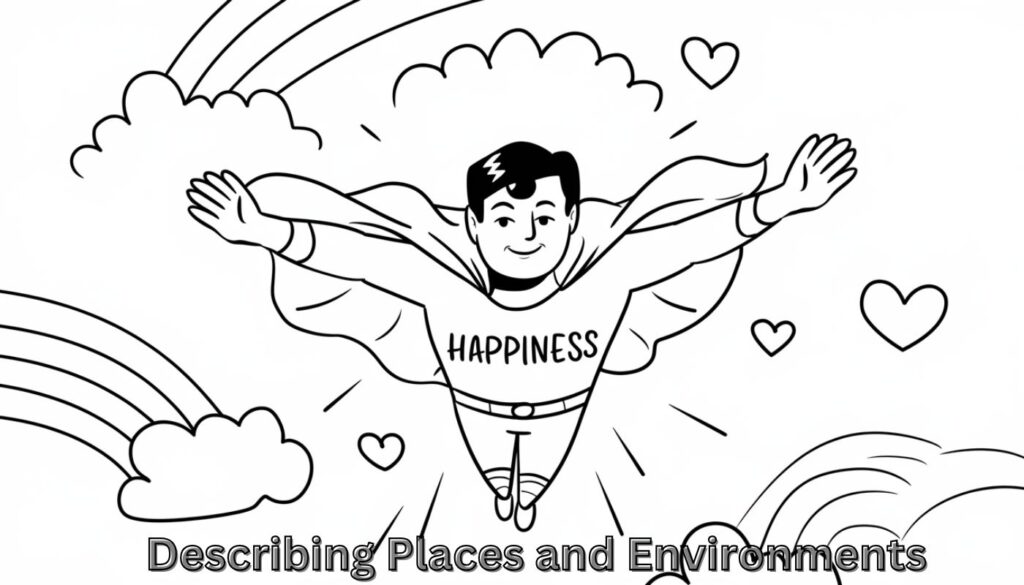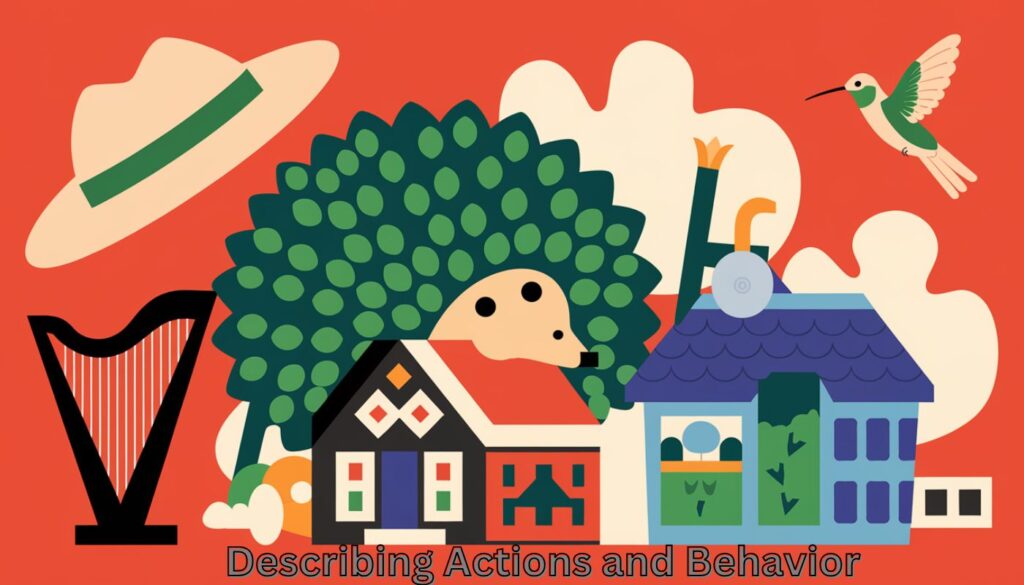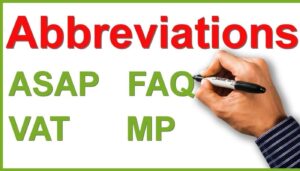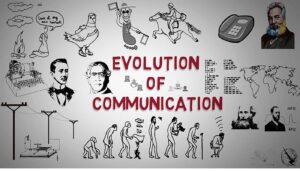Language is a powerful tool that shapes how we express ourselves, connect with others, and understand the world around us. Whether you’re writing an essay, crafting a speech, or simply engaging in a conversation, the words you choose can make all the difference.
One simple yet effective way to elevate your language is by expanding your vocabulary—specifically with adjectives. Adjectives, after all, are the colorful paint that bring your thoughts to life.
In this article, we’ll explore 30 adjectives starting with the letter “H,” showcasing how these words can enrich your communication. From describing emotions to physical traits, these adjectives will help you express yourself more clearly and creatively.
Describing People: The Power of Personality and Appearance
When describing a person, adjectives provide vivid imagery and evoke emotions. Here are some “H” adjectives that are perfect for painting a clearer picture of someone’s character or appearance:
- Handsome: A term often used to describe a good-looking man, typically conveying a polished and striking appearance.
- Hasty: Someone who makes decisions quickly, often without fully thinking things through.
- Hardworking: A person who consistently puts in a lot of effort and dedication into their tasks.
- Honest: A person who is truthful and trustworthy in their words and actions.
- Humble: Describes someone who is modest, without arrogance or pride.
- Hospitable: Someone who is friendly and welcoming to guests.
- Hot-tempered: A person who is quick to anger and easily loses their temper.
- Heartfelt: A sincere and deeply emotional expression of feelings.
- Heroic: Someone who exhibits great courage or acts in a noble way, often in challenging situations.
- Hypocritical: Describes someone who contradicts their own beliefs or principles, acting in a way that is morally inconsistent.
These adjectives help convey both external and internal qualities, allowing you to describe someone more accurately and richly.
Describing Emotions and Feelings
Feelings are an integral part of human experience, and describing them with precision can make your communication more relatable and impactful. Here are some adjectives starting with “H” that are ideal for describing emotions:
- Happy: A common and versatile term used to express joy or contentment.
- Horrified: The intense feeling of shock or terror in response to something disturbing.
- Hopeful: The feeling of optimism and belief in positive outcomes.
- Helpless: Describes the feeling of lacking control or the ability to improve a situation.
- Heartbroken: A deep, overwhelming sadness often caused by loss or disappointment.
- Hysterical: An extreme emotional reaction, usually in the form of uncontrollable laughter or crying.
- Hostile: An aggressive or unfriendly attitude towards others.
- Hurt: The emotional pain one feels as a result of insult, injury, or betrayal.
Using these adjectives allows you to describe emotions with greater depth, which can enhance your storytelling or personal expression.
Describing Things and Situations
In addition to people and emotions, adjectives are essential when discussing things or situations. Here are some “H” adjectives that can help you create clearer descriptions:
- Hollow: Describes something that is empty inside or lacking substance.
- Harmful: Something that causes damage or injury, either physically or emotionally.
- Heavy: A straightforward term that denotes a great weight or importance.
- Harsh: Describes something severe, cruel, or difficult to endure.
- Huge: A simple but powerful adjective to describe something of large size or extent.
- Hasty: Refers to something done quickly and often without careful consideration.
- Hazardous: Something that poses a danger or risk.
- Handy: Convenient and useful, often referring to something that is easy to use or accessible.
- Hypothetical: Describes a situation or idea that is imagined or based on assumptions, not actual events.
These adjectives can add precision and detail when discussing objects, situations, or concepts.
Describing Places and Environments
Whether you’re writing about a location or setting the scene in a story, the right adjective can transport your audience. Here are some “H” adjectives perfect for describing places and environments:

- Haunted: A place associated with ghosts or a spooky atmosphere.
- Hot: Referring to a high temperature, commonly used for weather or climate.
- Hilly: Describes terrain with many hills or a rolling landscape.
- Harboring: A place that provides shelter or refuge, often used metaphorically as well.
- Healthy: Refers to an environment that promotes well-being or vitality, such as fresh air or clean surroundings.
- Horrendous: A term for a place or situation that is extremely unpleasant or distressing.
Using these adjectives helps convey the atmosphere or conditions of a place, making your writing more engaging and immersive.
The Importance of Expanding Your Vocabulary
Adjectives like the ones listed above offer a tremendous opportunity to expand your vocabulary and improve your communication skills.
Whether you’re a writer, student, or simply someone looking to express yourself more effectively, using a variety of adjectives can add nuance and clarity to your words.
Incorporating these “H” adjectives into your daily conversations or written work will not only help you convey your thoughts with greater precision but also allow you to connect with others in a more meaningful way.
You don’t need to memorize them all at once start small by adding a few new words to your vocabulary each day, and before long, you’ll notice a positive shift in the way you communicate.
Key Takeaways
- Adjectives enrich language, helping you describe people, emotions, objects, and places more vividly.
- Using a variety of adjectives can enhance both your written and spoken communication.
- Start by integrating a few new adjectives into your daily conversations, and continue to expand your vocabulary over time.
Language is a journey, and every word you learn brings you one step closer to more effective self-expression. So why not make today the day you add some “H” adjectives to your repertoire? Happy learning!
Describing People: Characteristics and Traits
The people around us are full of unique traits, and adjectives help us capture their essence. Here are 10 more “H” adjectives for describing individuals:
- Haggard: A person who looks worn out or exhausted, often from worry or illness.
- Handicapped: Describes someone with a physical or mental disability that limits certain abilities.
- Heedless: Someone who doesn’t pay attention to warnings or advice.
- Heartless: Lacking compassion or empathy; cruel or unkind.
- Helpless: Unable to act or do anything to improve a situation; weak or vulnerable.
- Heroine: The female protagonist in a story, admired for her courage or noble qualities.
- Hilarious: Someone who is extremely funny or causes great laughter.
- Homely: A person who is plain or unattractive in appearance, though often with a warm personality.
- Hospitable: A person who is welcoming and generous to guests.
- Haughty: Someone who is arrogantly superior or disdainful of others.
These adjectives give you the flexibility to describe people in more detailed ways, from their personalities to their physical states.
Describing Emotions and Moods
Emotions are central to human experience, and adjectives are the key to conveying the full range of these feelings. Here are 10 additional “H” adjectives to describe various emotional states:
- Harrowed: Feeling distressed, overwhelmed, or tormented by difficult situations.
- Horrified: Filled with shock or disgust, often due to a disturbing or frightening event.
- Hopeful: The state of feeling optimistic about future possibilities.
- Heartbroken: Deeply saddened, often due to a loss or disappointment.
- Hostile: Displaying or expressing animosity or unfriendliness.
- Hurt: Experiencing emotional pain or injury, especially from betrayal or loss.
- Hyper: Extremely energetic or excitable, often with an inability to sit still.
- Hysterical: Overcome with uncontrollable emotions, often to the point of irrational behavior.
- Haunted: Feeling tormented by something from the past, or metaphorically describing a persistent fear or worry.
- Humiliated: Feeling ashamed or embarrassed, often in front of others.
With these adjectives, you can describe the inner workings of the human heart and mind, providing greater depth to your storytelling and communication.
Describing Objects and Things
Whether you’re describing everyday objects or more abstract concepts, adjectives help clarify your meaning. Here are 10 adjectives starting with “H” that describe things or situations:
- Hollow: Empty inside or lacking substance; can refer to both physical objects and feelings.
- Heavy: A term for something with great weight or seriousness.
- Handsome: Used to describe an object, such as a piece of furniture or a building, that is aesthetically pleasing and well-designed.
- Hard: A descriptor for something firm, solid, or difficult to break or penetrate.
- Harsh: Something severe or unpleasant to the senses, such as a harsh sound or environment.
- Harmful: Causing damage or injury; dangerous to health or well-being.
- High-tech: Referring to the latest, most advanced technology.
- Hot: High in temperature or describing a spicy flavor or intense sensation.
- Hyped: Something that has been excessively promoted or is surrounded by intense excitement.
- Hazardous: Dangerous or risky; a potential source of harm.
These adjectives can help you describe things with more precision, from tangible items to abstract ideas.
Describing Places and Environments
Setting the scene is crucial in both writing and conversation. Here are 10 more “H” adjectives that help describe various locations and environments:
- Haunted: A place that is believed to be frequented by ghosts, often associated with eerie or unsettling feelings.
- Hilly: Describes land or terrain with many hills or inclines.
- Horrendous: A place or situation that is shockingly unpleasant or terrifying.
- Harboring: A place that offers shelter or protection, especially from danger or harsh conditions.
- Hot: Referring to a climate or environment with a high temperature.
- Horrific: Describes a place or event that is terrifying or deeply distressing.
- Hilltop: The highest point of a hill or mountain, often offering a scenic view.
- Hygienic: A place that is clean, sanitary, and conducive to health.
- Hospitable: A place that is welcoming and offers comfort to guests.
- Harsh: A place or environment that is severe or difficult to survive in, such as a desert or tundra.
These adjectives add richness to your descriptions of places, whether you’re writing fiction or simply talking about your experiences.
Describing Actions and Behavior

Adjectives aren’t just limited to people, things, or emotions—they can also describe actions or behavior. Here are 10 more adjectives starting with “H” to help illustrate behavior:
- Habitual: Describes something done regularly or out of habit.
- Hasty: Someone who acts quickly without thinking things through.
- Honorable: Describes someone who acts in accordance with ethical principles and moral integrity.
- Hesitant: Acting with uncertainty, often because of doubt or fear.
- Harried: Someone who is feeling rushed, stressed, or overwhelmed due to multiple demands.
- Horrified: Acting in a state of shock or disgust, often in reaction to something upsetting.
- Heedless: Describes someone who pays no attention to advice or warnings.
- Harmonious: Acting in a balanced and peaceful way, often in a group setting.
- Hyperactive: Acting with excessive energy, often with difficulty sitting still or focusing.
- Hypocritical: Someone who behaves in a way that contradicts their stated beliefs or values.
These adjectives are valuable when you want to convey the manner or style in which someone acts.
Describing Nature and Animals
Nature and animals provide abundant opportunities for rich descriptions. Here are 10 more “H” adjectives to describe the natural world:
- Herbaceous: Describing plants that are green and leafy, typically referring to non-woody plants.
- Harmonic: Describing a sound or rhythm that is pleasing to the ear, often used for natural sounds like birdsong or the wind.
- Hungry: A term that describes an animal’s need for food or a person’s desire for nourishment.
- Hairy: Describes something covered in hair, such as a furry animal or a plant with fine, hair-like structures.
- Hot-blooded: Describes animals or humans that are passionate, energetic, or prone to strong emotions.
- Hibernating: Referring to animals that sleep through the winter months, conserving energy in a dormant state.
- Harmless: Describes something that doesn’t pose a threat or danger.
- Huge: Used to describe very large or massive animals or plants.
- Hoary: Describing something gray or white with age, like the hoary appearance of certain animals.
- Hostile: Describes an aggressive or unfriendly animal or natural environment.
These adjectives add detail when discussing animals, plants, or the broader natural world.
Describing People: Traits and Personalities
People are diverse, and adjectives are essential for capturing their various qualities. Here are 10 more “H” adjectives to describe individuals:
- Hapless: A person who seems constantly unlucky or unfortunate.
- Horrible: Someone who behaves in an extremely unpleasant or detestable manner.
- Hasty: A person who acts quickly, often without careful consideration.
- Hogged: A person who takes more than their fair share of something.
- Hardy: A person who is strong and resilient, able to endure difficult conditions.
- Hefty: Describing someone who is large or heavy in terms of physical build.
- Hilarious: Someone or something that is extremely funny or amusing.
- Hawkish: A person who is aggressive or warlike, particularly in political views.
- Harmonious: A person who is in agreement and works well with others, creating balance.
- Honorable: Someone who acts with integrity and follows strong moral principles.
These adjectives give you the ability to describe a wide range of personalities, from resilient to humorous or even difficult individuals.
Describing Emotions and Feelings
Our emotions often guide our actions, and adjectives allow us to describe these emotional states in rich detail. Here are 10 more “H” adjectives for emotions:
- Hurtful: Something that causes emotional pain or injury.
- Happy-go-lucky: A carefree, lighthearted individual who doesn’t worry much.
- Hopeless: The feeling of having no expectation of improvement or success.
- Hysterical: Extreme emotional distress, often marked by uncontrollable laughter or crying.
- Harassed: The feeling of being persistently troubled or overwhelmed by stress.
- Heartwarming: Something that brings joy, comfort, or emotional uplift.
- Humiliated: The feeling of being embarrassed or ashamed, often in public.
- Horrified: The intense feeling of shock or disgust, often due to something horrifying.
- Heartened: Feeling encouraged or uplifted, often by positive feedback or hope.
- Hostile: An emotionally antagonistic state, filled with animosity or aggression.
These adjectives are useful for describing the full spectrum of human emotions, from joy to anger, fear, and beyond.
Describing Objects, Things, and Concepts
Adjectives help convey specific details about the things we encounter in life. Here are 10 more “H” adjectives to describe various objects or concepts:
- Handmade: An object made by hand, typically implying quality and craftsmanship.
- Horrible: Describes something that is very unpleasant or disturbing.
- Hardwood: A term used for dense, durable wood, often used in furniture or flooring.
- Holistic: Describing an approach that considers all aspects of something, rather than just individual parts.
- Hollow: Describes something that is empty inside or lacking substance.
- Hasty: Something done quickly, often without sufficient thought or consideration.
- Hot: Describes something that is high in temperature or intense in flavor (e.g., spicy).
- Heavy-duty: Describes something designed for tough, demanding tasks, like industrial machinery or tools.
- Handy: Convenient and useful, easy to access or use.
- Holographic: Describes a 3D image created using holography, or something resembling such images.
These adjectives help create vivid, specific descriptions of everyday objects, ideas, and tangible items.
Describing Places and Locations
Places shape our experiences, and adjectives help us bring those places to life. Here are 10 “H” adjectives perfect for describing locations:
- Haunting: A place that evokes a strong, lingering feeling of unease or mystery.
- Hilly: Describes terrain with numerous hills or undulating slopes.
- Hidden: Something that is not easily seen or discovered, often intentionally concealed.
- Hot: Describing a place with a high temperature, such as a desert or tropical region.
- Harsh: A place that is difficult to live in or endure due to its extreme conditions, such as a harsh climate.
- Heavenly: A place that is serene, peaceful, and delightful, like an idealized paradise.
- Hospitable: A place that is welcoming and friendly to guests or visitors.
- Historical: A place or site of significance to history, often filled with landmarks or relics from the past.
- Hectic: A place characterized by constant activity, chaos, or bustle.
- Harmful: A place or environment that is dangerous or damaging, either physically or emotionally.
These adjectives are ideal for setting the scene or describing places, whether in storytelling, travel writing, or casual conversation.
Describing Actions and Behavior
Behavior and actions define how we interact with the world. Adjectives can help describe actions or tendencies with precision. Here are 10 additional “H” adjectives:
- Harmful: Describes an action that causes damage or injury.
- Habitual: Describes actions done regularly or out of routine.
- Hasty: Refers to actions done quickly, often without thought or consideration.
- Heedless: Describes an action where someone pays little attention to consequences or warnings.
- Harmonic: Actions that are in agreement or balance, often used in the context of music or cooperation.
- Horrendous: Describes an action or event that is shockingly bad or appalling.
- Hearty: Describes an action that is full of energy, enthusiasm, or sincerity.
- Hostile: Describes aggressive or unfriendly actions or behaviors.
- Hyperactive: Describes someone constantly in motion, often to an extreme degree.
- Horrified: Describes a reaction to something shocking or terrifying, often causing a person to freeze or respond dramatically.
These adjectives can give depth and nuance to the way actions are described, whether in fiction, everyday life, or discussions of behavior.
Describing Nature and Animals
Nature offers a vast range of experiences, and adjectives can help capture the wonder of the natural world. Here are 10 more “H” adjectives for describing the environment and animals:
- Hairy: Describes an animal or plant that is covered in hair, often used for texture.
- Herbaceous: Refers to plants that are green and leafy, typically non-woody plants.
- Hungry: Describes an animal that needs food or a person with a strong appetite.
- Hoary: Describes something gray or white, often used for older animals or plants with a frosty appearance.
- Harmless: Describes an animal or natural occurrence that is not dangerous.
- Hot-blooded: A term often used for animals that are more active, aggressive, or passionate in nature.
- Hibernating: Refers to animals that enter a dormant state during cold months.
- Hostile: Refers to animals that are aggressive or ready to fight.
- Hunting: Refers to the action of seeking and killing prey, often by predators.
- Hydrated: Describes plants or animals that have enough water to function properly.
These adjectives help us describe the animal kingdom and the natural world in greater detail.
Conclusion
Expanding your vocabulary with these 50 additional adjectives starting with “H” gives you a broader range of expression, whether you’re describing people, emotions, places, objects, or actions. By using these adjectives, you can communicate with more precision and clarity, making your writing and speaking more vivid and engaging.
The beauty of language lies in its versatility, and the more words you have at your disposal, the more effective you become at conveying your ideas. So, why not start incorporating some of these “H” adjectives into your daily conversations and writing? Every new word you learn adds to your ability to communicate effectively and creatively.
Test Your Knowledge with Fun Quizzes
1. Which adjective describes someone who is full of energy and constantly moving?
A) Hearty
B) Hasty
C) Hyperactive
D) Harmonious
Answer: C) Hyperactive
2. What does the adjective “Heavenly” describe?
A) A place that is harsh and difficult to live in
B) A place that is serene and peaceful, like an idealized paradise
C) A person who is energetic
D) An object that is extremely large
Answer: B) A place that is serene and peaceful, like an idealized paradise
3. Which adjective would you use to describe an animal that is in a dormant state during cold months?
A) Harmless
B) Hibernating
C) Hungry
D) Hot-blooded
Answer: B) Hibernating
4. What does “Hogged” mean in terms of behavior?
A) Sharing something equally
B) Taking more than one’s fair share of something
C) Acting with kindness
D) Displaying warmth and friendliness
Answer: B) Taking more than one’s fair share of something
5. Which adjective describes something that is shocking or appalling in a negative way?
A) Harmonious
B) Horrendous
C) Hearty
D) Humiliated
Answer: B) Horrendous
6. What does the adjective “Hostile” describe?
A) A place that is welcoming
B) An animal that is calm and non-aggressive
C) A person who is unkind or aggressive
D) A person who is peaceful and cooperative
Answer: C) A person who is unkind or aggressive
7. Which adjective is used to describe a place or environment that is difficult to endure due to extreme conditions?
A) Hot
B) Harsh
C) Heavenly
D) Harmonious
Answer: B) Harsh
8. What does “Hapless” describe?
A) Someone who is constantly lucky
B) A person who seems to be always unlucky or unfortunate
C) A person who is always kind and helpful
D) Someone with a cheerful personality
Answer: B) A person who seems to be always unlucky or unfortunate
9. If a person is “Heedless,” they are:
A) Paying careful attention to details
B) Ignoring warnings or advice
C) Very generous and kind
D) Actively helping others
Answer: B) Ignoring warnings or advice
10. What does the adjective “Hollow” describe?
A) Something that is solid and full
B) Something that is empty inside or lacking substance
C) Something extremely valuable
D) A feeling of warmth and kindness
Answer: B) Something that is empty inside or lacking substance
11. Which adjective describes a person who has integrity and follows strong moral principles?
A) Hearty
B) Harmonious
C) Honorable
D) Hasty
Answer: C) Honorable
12. If a person is described as “Horrified,” they are:
A) In a state of deep sadness
B) Overcome with shock or disgust
C) Feeling very joyful
D) In a calm and peaceful state
Answer: B) Overcome with shock or disgust
13. Which adjective best describes something that is handmade and crafted with care?
A) Heavy-duty
B) Handmade
C) Hot-blooded
D) Harmless
Answer: B) Handmade
14. What does “Harmful” describe?
A) A situation that is pleasant and beneficial
B) Something that causes damage or injury
C) Something that is helpful and kind
D) A place that is warm and inviting
Answer: B) Something that causes damage or injury
15. What does the adjective “Hyperactive” suggest about a person?
A) Extremely lazy
B) Excessively energetic, often in a disruptive way
C) Highly emotional and unstable
D) Someone who is slow to respond
Answer: B) Excessively energetic, often in a disruptive way
16. Which of the following adjectives is used to describe a person who acts quickly without thinking?
A) Hesitant
B) Hasty
C) Hearty
D) Helpful
Answer: B) Hasty
17. What does “Hungry” describe?
A) Someone who is angry
B) A person who is seeking attention
C) An animal or person in need of food
D) Someone who is tired
Answer: C) An animal or person in need of food
18. Which adjective describes something that is pleasant to the ear or creates a balanced sound?
A) Harmonious
B) Harsh
C) Horrible
D) Heedless
Answer: A) Harmonious
19. What is the meaning of “Hoary” when describing an animal or plant?
A) Very young
B) Covered in fine hair or frost
C) Extremely dangerous
D) Very large and intimidating
Answer: B) Covered in fine hair or frost
20. Which adjective describes a person who is quick to anger or passionate in their actions?
A) Hot-blooded
B) Harmonious
C) Hibernating
D) Hypocritical
Answer: A) Hot-blooded
21. What adjective would describe a situation where a person feels deeply embarrassed or ashamed?
A) Horrified
B) Humiliated
C) Hopeful
D) Heartened
Answer: B) Humiliated
22. Which adjective refers to a place that offers protection or shelter?
A) Hectic
B) Hidden
C) Harboring
D) Hearty
Answer: C) Harboring
23. What does the adjective “Harmonic” refer to?
A) Actions that create conflict
B) A pleasing and balanced arrangement or sound
C) A negative or disturbing event
D) A person who is not friendly
Answer: B) A pleasing and balanced arrangement or sound
24. Which adjective describes something that is dense and difficult to break or penetrate?
A) Hefty
B) Hollow
C) Hard
D) Heedless
Answer: C) Hard
25. What does “Hapless” describe in terms of luck?
A) A person who is exceptionally lucky
B) A person who seems to always be unlucky or unfortunate
C) Someone who is content with their situation
D) A person who always brings happiness
Answer: B) A person who seems to always be unlucky or unfortunate
26. Which adjective best describes a person who does not give up easily and endures tough conditions?
A) Hearty
B) Harsh
C) Hardy
D) Hasty
Answer: C) Hardy
27. What adjective would you use to describe a situation that is both busy and stressful?
A) Heavenly
B) Hectic
C) Harmonious
D) Hidden
Answer: B) Hectic
28. If someone acts “Heedless,” what are they likely ignoring?
A) Instructions and advice
B) The need to act quickly
C) Their emotions
D) Their responsibilities
Answer: A) Instructions and advice
29. Which adjective describes a person who is generous and kind to others?
A) Haughty
B) Hospitable
C) Hyperactive
D) Hasty
Answer: B) Hospitable
30. Which adjective is used to describe a building or structure that is aesthetically pleasing?
A) Hasty
B) Hefty
C) Handsome
D) Harried
Answer: C) Handsome
31. What does “Hollow” mean when referring to an object?
A) Full of substance
B) Empty or void inside
C) Covered in hair
D) Extremely durable
Answer: B) Empty or void inside
32. Which of the following best describes a feeling of deep sadness and loss?
A) Heartened
B) Heartbroken
C) Hasty
D) Happy-go-lucky
Answer: B) Heartbroken
33. What does “Harmful” suggest about an action or substance?
A) It is kind and beneficial
B) It can cause damage or injury
C) It is healthy and good for you
D) It promotes peace and unity
Answer: B) It can cause damage or injury
34. Which of the following is used to describe a place that has many hills or inclines?
A) Hidden
B) Hilly
C) Harmonic
D) Hefty
Answer: B) Hilly
35. What does “Hyped” refer to in the context of an event or object?
A) Something that has been promoted or excessively talked about
B) Something that is old and uninteresting
C) Something that is difficult to understand
D) A person who is acting very quiet
Answer: A) Something that has been promoted or excessively talked about
36. What adjective best describes a person who is quick to act without thinking thoroughly?
A) Hearty
B) Harmonious
C) Hasty
D) Heedless
Answer: C) Hasty
37. What adjective would you use to describe an animal that is not dangerous?
A) Harmless
B) Hungry
C) Heedless
D) Hostile
Answer: A) Harmless
38. What does “Heartened” describe?
A) A person who is sad
B) A person who is feeling encouraged or uplifted
C) A person who is angry
D) A person who is extremely tired
Answer: B) A person who is feeling encouraged or uplifted
39. Which adjective describes something that is full of physical energy or enthusiasm?
A) Hasty
B) Hot-blooded
C) Harmonious
D) Hearty
Answer: B) Hot-blooded
40. What does “Hungry” describe in terms of need?
A) A desire for knowledge
B) A need for food
C) A need for sleep
D) A need for socializing
Answer: B) A need for food









